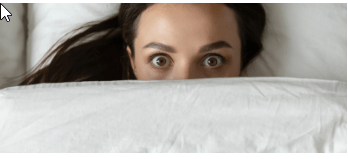Why Do People Twitch in Their Sleep
Have you ever woken up to find yourself twitching uncontrollably in your sleep?
If so, you’re not alone. In fact, many of us experience this phenomenon on a regular basis.
While it may seem like a harmless and involuntary movement, there is actually an underlying reason why our bodies twitch during sleep.
In this blog post, we’ll explore the science behind sleep twitching and what it could mean for your overall health.
1. Understanding Hypnic Jerks or Sleep Starts
Understanding hypnic jerks or sleep starts is essential for anyone who experiences involuntary muscle contractions while falling asleep.
Hypnic jerks refer to sudden muscle contractions that occur as individuals transition from being awake to asleep.
These jerks can be startling and even cause the feeling of falling off a cliff or tumbling out of bed. Research suggests that hypnic jerks are harmless and occur more frequently in people experiencing stress, anxiety, or sleep deprivation.
urthermore, certain factors such as caffeine consumption and REM sleep have been linked to the triggering of hypnic jerks.
By understanding the phenomenon of hypnic jerks, individuals can take necessary precautions to minimize their occurrence, such as practicing relaxation techniques to improve sleep quality.
2. How Jerking or Twitching Helps Keep You Safe
The jerking or twitching that occurs during sleep may seem like a cause for concern, but it actually serves as a safety mechanism.
As the body transitions into sleep, the muscles begin to relax which can give the sensation of falling. Jerking or twitching is the body’s way of jolting itself back into a state of alertness and preventing the feeling of falling.
In this way, involuntary muscle contractions serve as a protective reflex to keep us safe during sleep. While these movements may be alarming, they are completely normal and serve an important purpose in keeping us safe while we rest.

3. Causes of Hypnic Jerks
3. Causes of Hypnic Jerks
While the exact cause of hypnic jerks remains uncertain, there are some factors that may increase the likelihood of experiencing these involuntary muscle contractions as one falls asleep.
One possible explanation is related to the transition from wakefulness to sleep. As the alpha rhythm in the brain becomes less organized and slower, some nerves in the legs or arms may misfire and send conflicting signals to muscles, leading to a sudden twitch or jerk.
Another factor that may contribute to hypnic jerks is sleep deprivation, which can disrupt the natural sequence of brain activity and lead to irregular muscle movements.
Similarly, stress or anxiety can trigger an overactive sympathetic nervous system, which can increase muscle tension and make it more likely to twitch. These causes may interact with each other, creating a cycle of arousal and tension that disrupts sleep and worsens hypnic jerks.
However, it is worth noting that not everyone experiences hypnic jerks, and some people may have a genetic predisposition or a differential sensitivity to sensory stimuli that affects their muscle control during sleep.
By exploring these causes and their potential interactions, one can gain a better understanding of why people twitch in their sleep and how to address this phenomenon.

Stress, Anxiety or Sleep Deprivation
The causes of hypnic jerks or sleep starts might be rooted in stress, anxiety, or sleep deprivation. These three factors can disrupt the typical sleep patterns, leading to the occurrence of involuntary muscle contractions. Stress and anxiety can make it challenging to fall asleep or maintain deep sleep.
Sleep deprivation, on the other hand, leads to sleep fragmentation, which means the brain cannot transition smoothly between different sleep phases. As a result, one might experience a higher frequency of hypnic jerks.
When people suffer from sleep disturbances, their brains may become more sensitive to stimuli, creating a hyperarousal state that increases the likelihood of hypnic jerks during sleep.
Besides, caffeine, which is a common ingredient in drinks such as coffee, tea, and energy drinks, can also trigger hypnic jerks due to its stimulant effects on the nervous system.
Understanding these causes can help individuals better regulate their sleep habits to prevent or reduce the incidence of hypnic jerks.
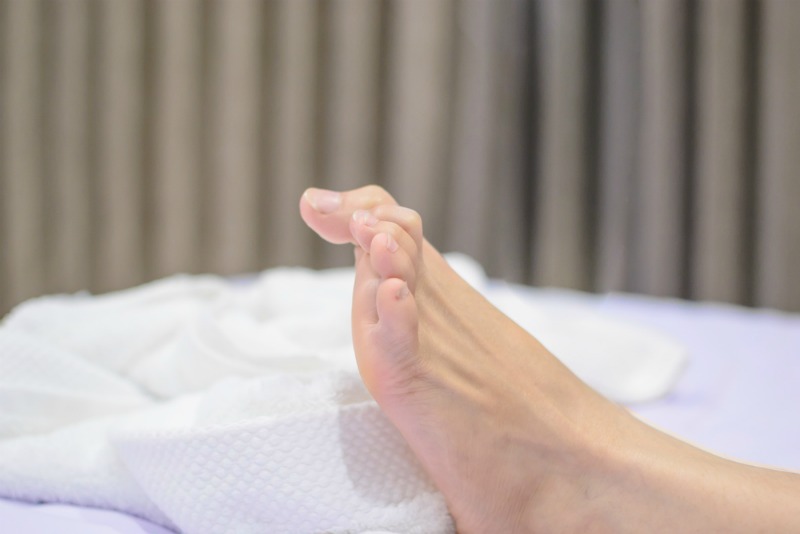
4. The Relationship between Muscle Relaxation and Sleep Jerks
When the body falls into deep sleep, its muscles naturally relax. However, this muscle relaxation is sometimes misinterpreted by the brain as a falling sensation.
In response, the brain signals the muscles to twitch or jerk, which can result in hypnic jerks or sleep starts. This involuntary muscle movement is typically harmless, though it can sometimes be severe enough to wake a person up. Stress, anxiety, sleep deprivation, and hyperarousal are among the factors that can increase the likelihood of experiencing these jerks.
dditionally, consuming caffeine close to bedtime can exacerbate the issue. Understanding the relationship between muscle relaxation and sleep jerks can help individuals identify and manage the factors that contribute to their occurrences.
5. Exploring Involuntary Muscle Contractions and Sleep
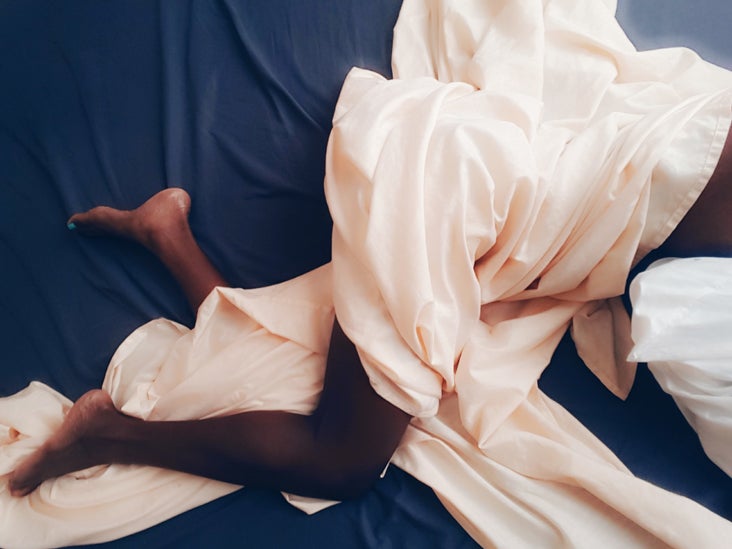
Involuntary muscle contractions while sleeping are not uncommon, and can occur for various reasons. These muscle contractions are known as hypnic jerks, and often happen just as people are drifting off to sleep. Stress, anxiety, or sleep deprivation are common causes of these jerks.
However, they can also be brought on by caffeine consumption or hyperarousal. During sleep, the brain sends signals to the body to relax and inhibit movement, but sometimes these signals can be interrupted.
When this happens, the body can twitch or jerk involuntarily, which is a normal response. It is important to note that, in most cases, hypnic jerks or sleep twitches are considered harmless and do not require medical attention.
However, if these jerks are frequent, severe, or disruptive to sleep, it may be worth consulting a healthcare professional.
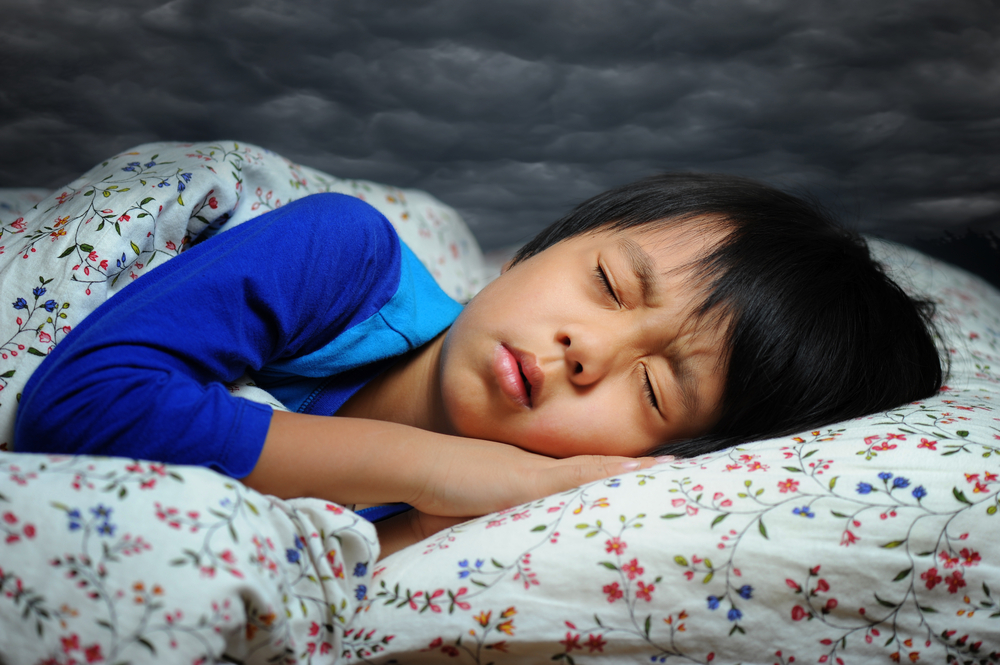
6. How Twitching in Your Sleep Can Be Subtle or Severe
Muscle twitches during sleep can vary in their intensity and severity. Some people may experience subtle movements that are barely noticeable, while others may experience severe jerking that can wake them up from their sleep. The severity of the twitching often depends on the underlying cause, with stress and anxiety being the most common culprits.
In some cases, twitching during sleep can be a sign of a more serious condition, such as epilepsy. It’s important to speak with a healthcare provider if your twitches are severe, disrupt your sleep, or are accompanied by other concerning symptoms.
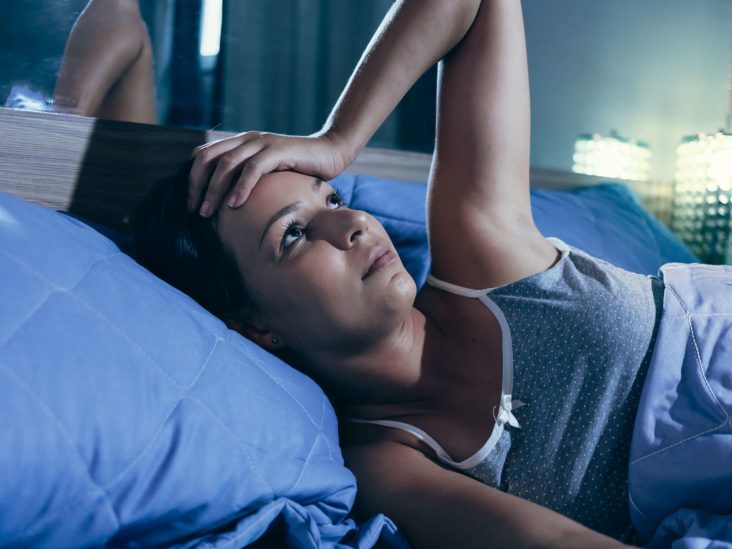
7. Gender Differences in Experiencing Jerking in Sleep
Studies have shown that men are more prone to experiencing hypnic jerks or sleep starts than women.
This could be due to various factors, including hormone differences and higher levels of stress and anxiety. However, it’s important to note that women can also experience involuntary muscle contractions during sleep. Additionally, the frequency and severity of hypnic jerks can vary greatly between individuals, regardless of gender.
It’s crucial for anyone experiencing frequent and disruptive sleep jerks to consult a medical professional and address any underlying causes such as stress or sleep deprivation.
8. Hyperarousal and Twitching in Sleep
Hyperarousal is a state where the body is in a heightened state of alertness, making it difficult for the body to relax and fall asleep. This state is often associated with anxiety, stress, and depression; conditions that are known to cause twitching and jerking during sleep.
This can create a vicious cycle, where the twitching causes sleep disruptions, which in turn result in more anxiety and stress, exacerbating the problem. To address this issue, people with hyperarousal can benefit from relaxation techniques such as deep breathing or meditation, as well as practicing good sleep hygiene.
Avoiding screens before bedtime, establishing a regular sleep schedule, and avoiding stimulants such as caffeine can all help calm the body and promote better sleep.

9. Caffeine Consumption and Hypnic Jerks
Consuming too much caffeine can significantly increase the risk of experiencing hypnic jerks or sleep starts. As a stimulant, caffeine can make the brain more alert, making it difficult to fall asleep and stay asleep.
This increased level of arousal can cause muscle spasms, cramps, and twitching, which can ultimately lead to hypnic jerks. In addition to caffeine, stress, anxiety, and sleep deprivation can also contribute to these involuntary muscle contractions.
It is recommended to limit caffeine intake and practice healthy sleep habits to minimize the occurrence of hypnic jerks.
10. Why REM Sleep Triggers Body Jerks and Twitches
REM sleep, or Ra pid Eye Movement sleep, is a crucial stage of sleep that happens when the body is in deep sleep. This stage is known to trigger body jerks and twitches, including sleep myoclonus or hypnic jerks, because the brain becomes more active during this time.
pid Eye Movement sleep, is a crucial stage of sleep that happens when the body is in deep sleep. This stage is known to trigger body jerks and twitches, including sleep myoclonus or hypnic jerks, because the brain becomes more active during this time.
As the body enters this phase, muscles become more relaxed, and the brain sends signals to the muscles, which can cause them to twitch or jerk. These sleep jerks are more pronounced during the later stages of sleep and can be triggered by various factors.
Sleep deprivation, anxiety, stress, and stimulants like caffeine can increase the frequency of REM sleep and therefore increase the chances of experiencing sleep jerks. Understanding the relationship between sleep phases and involuntary muscle contractions can help people take steps to adjust their lifestyle and reduce the frequency of sleep jerks.

